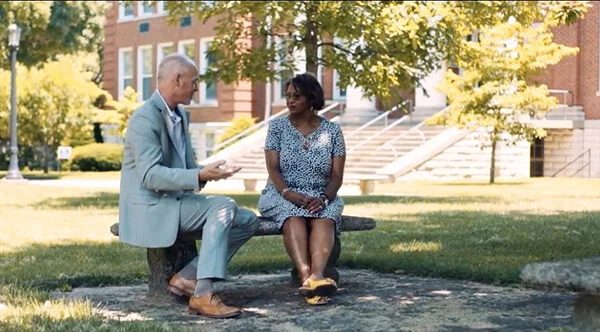Guardianship Information
The decision to seek a Guardianship/Conservatorship over a loved one should not be made without first considering other, less extreme options. A Court’s determination that your loved one needs a Guardianship will legally strip them of many of their fundamental rights making them a Ward of the Commonwealth. It will also place upon the Guardian responsibilities and duties to the Court and the Ward for the life of the Ward.

A Guardianship proceeding is initiated by an individual or individuals filing a Petition with the District Court in the county where the Ward lives. The Court will appoint a Guardian ad litem (GAL; also called the Attorney for the Respondent) to serve as counsel for the Ward. The Ward will have to go through three evaluations, one by a psychologist, one by a medical doctor and another by a social worker; each of whom will submit their findings to the Court for review.
On the date of the hearing, the Ward, along with the Petitioners seeking guardianship, will come before the Court. The Ward will be asked to take the stand to speak on their condition and opinion on if they need a Guardian. This could be an extremely trying situation for the Ward and this is another reason we would advise seeking other options prior to a Guardianship. The Ward does have the option to not attend, but this can be equally concerning that a court action about them is occurring without them being able to listen in.
Seeking guidance from an attorney before pursuing a Guardianship could prevent a lot of unneeded expenses and heartache. If a Guardianship is the only or best option, Elder Law Guidance: The Elder Law Practice of Scott E. Collins, PLLC has attorneys and staff experienced in assisting clients through this process. These are huge decisions involving many facets that will impact the family for the life of the Ward and should be handled cautiously. We are glad to help you weigh out these options before making this big decision.
The rule within the Commonwealth of Kentucky is that the least restrictive means for assisting the person under consideration should be sought. In other words, don’t do Guardianship if there is an alternative. If there is a Power of Attorney (POA) that is written well enough to cover the person’s needs, then guardianship is unnecessary. Additionally, even if there is a POA in place that is insufficient, it is to be considered as suggesting the potential Ward’s preference for the person who should be appointed as the Guardian/Conservator.
The difference between the Guardian and a Conservator is that the Guardian oversees healthcare matters for the Ward, and the Conservator is responsible for the financial choices for the Ward. There can be a different person for each role. However, this is not always the case. Often, the Court will appoint a single person to both roles.
Steps to Establish Guardianship in Kentucky
In our experience as an Elder Care Law firm, children come to us when they have hit a wall in their ability to properly care for one of their parents. If it is possible to have a POA signed, we will first go that route. If a Guardianship is needed, we will assist the child or children in being appointed as Guardian giving them the legal authority to conduct business and financial transactions as well as being able to help transition the parent into a nursing facility or other appropriate housing as needed.
A Family in Conflict

Establishing guardianship in Kentucky involves a structured legal process:
- File a Petition: Begin by submitting a guardianship petition to the District Court in the ward’s county of residence. The petition must detail the alleged incapacity and necessity for guardianship.
- Appoint a Guardian ad Litem (GAL): The court assigns a GAL to represent the ward’s interests, investigate claims, and ensure their rights are protected.
- Medical and Psychological Evaluations: The ward undergoes assessments by a psychologist, physician, and social worker to evaluate their capacity. These reports are submitted to the court.
- Notification: Close relatives and the ward must be formally notified of the hearing.
- Court Hearing: The judge reviews evidence, hears testimony from the petitioner, GAL, and the ward (if present), and decides whether guardianship is necessary.
This process ensures due process but can be emotionally taxing. Consulting an attorney helps navigate complexities and explore alternatives first.
Terminating or Modifying a Guardianship in Kentucky
Guardianships in Kentucky are not always permanent. They can be modified or terminated if:
- The Ward’s Condition Improves: If the ward regains capacity, a court may dissolve the guardianship after updated evaluations.
- Abuse or Neglect: If the guardian fails their duties, the court can appoint a replacement.
- Ward’s Death: Guardianship automatically ends upon the ward’s death.
To request changes, interested parties (including the ward) must file a petition with the court. The judge will review evidence, potentially order new evaluations, and hold a hearing. Kentucky law prioritizes the ward’s autonomy, so courts encourage less restrictive options if feasible. Legal guidance is critical to ensure compliance with procedural requirements and protect the ward’s rights.


